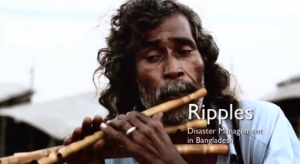I had this set of questions come up a few times in conversation over the past week. Usually it was from people who are out in congregations sharing the message of our work and relaying back the sense they were feeling. And it got me to thinking. Though they may strike some as inappropriate or attacking questions, I think they are totally legitimate and actually quite exciting. In these three questions we find the dual nature of the task we who work to communicate the work of our church face with every new situation.
This dual nature is to first communicate information of the situation and context in which it takes place (the Where? and What?). Secondly our role is to share our motivation for being involved (the Why?), of sharing how a particular situation relates to, is connected with and fundamentally is the continuing story of God’s work within the world. And beyond this, the person who is willing to ask these questions and entertain our answers is already engaged! I say the Spirit is present in these questions and it is our privilege to live into that presence.
The Where and the What
So now how does this translate from theory to reality? How could we go about answering these questions for this specific disaster? Well, to begin with the Horn of Africa is on the central eastern coast of Africa, and includes the countries of Somalia, Djibouti, Ethiopia and Eritrea. For this disaster we also include the country of Kenya. The area is being affected by a major drought which is affecting over 12 million people. Many people, mainly Somalis, are leaving their homes, walking up to 30 straight days and hundreds of miles to find food and water. The ELCA is working through the Lutheran World Federation, which administers the major refugee camps in Kenya and Ethiopia. We are also working with our companion churches in Kenya and Ethiopia. For more information you can check out the ELCA Disaster page Horn of Africa Drought.
The Why
We care first and foremost because Christ’s call has always been for obedience to God through service to the neighbor, the stranger, the least of these, even the enemy. Basically, when we encounter suffering in the world, no matter how remote the corner we are called to engage. An important piece to remember is that we are not called to run ourselves dry or to become doormats. We are also called by Christ to love the neighbor as ourselves, which can also mean we are to love ourselves as we love our neighbor. And though it is hard to swallow sometimes Christ also tells us that we will have the poor with us always, that suffering will forever be an aspect of this world until Christ comes again.
Another reason we are called to response is that as the Apostle Paul says, when one member of the body of Christ suffers, all suffer. As we learn more about the global nature of this body we can see how our response to global (and local) disasters is a fulfillment of our duty to our brothers and sisters in Christ. Their suffering is our suffering. Our joy in response is their joy. As the body of Christ we live and breathe as one out of many.
So to summarize we are called to act out of the gifts God has given us but to make sure we remember we too are children of God in need of support and the rest of God’s loving embrace. And we are called to remember that we are part of the global body of Christ and as we respond to the needs of our brothers and sisters half-way round the world or just next door, it is always to the same body.
A Note on Response
Yet, even though we are called to respond, the church has learned through trial and error that there are positive and negative ways to do so. We have have learned that response must be done through relationship, that wherever we go Christ is already working there and that the local population is almost always that best resource for determining and implementing our response.
And so is the case in this disaster. We have long-standing relationships as a member of the Lutheran World Federation and with our companions, the Kenyan Evangelical Lutheran Church (KELC) and the Ethiopian Evangelical Church Mekane Yesus (EECMY). Our response has been and will continue to be guided by our relationship with these, our brothers and sisters in Christ. As they continue to be the hands, voice and feet of Christ in their communities, we are blessed to be able to give our gifts and prayers to help them in their good work.
Conclusion
What really is at the base of all this is that we are called to share and engage the story of God’s people and creation. The reason any suffering calls us to engagement is because it happens to actual people and in actual places. Our calling is to introduce these people to those around us, sharing their story and providing the links of their story to our story and showing how both exist within God’s unfolding story of redemption.
————-
Gifts to ELCA International Disaster Response allow the church to respond globally in times of need. Donate now.


